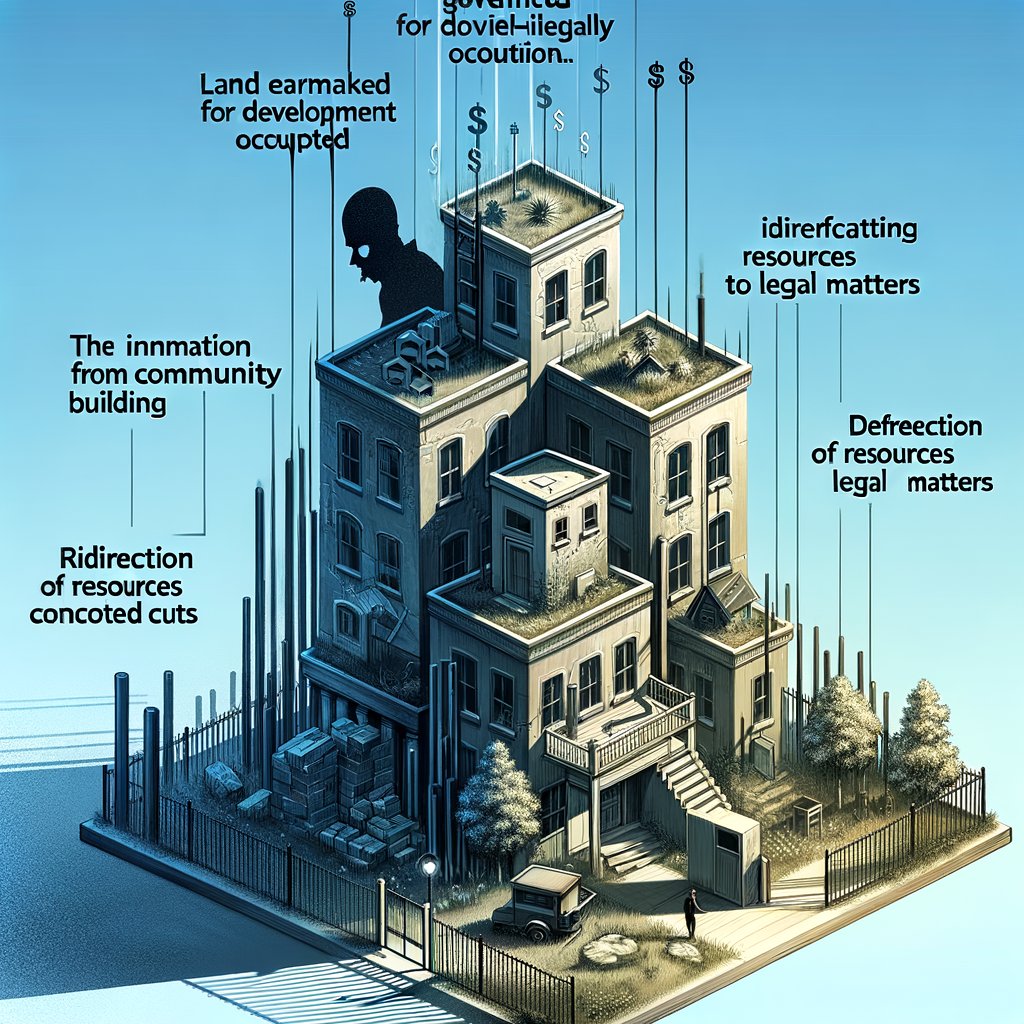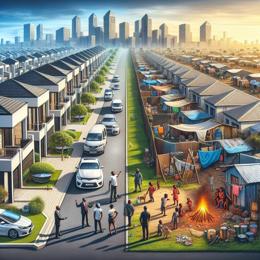Image created by AI
The High Price of Illegal Land Invasions in the Western Cape
The Western Cape Government (WCG) faces a daunting challenge that severely hampers its vision for growth and inclusivity – the rampant illegal occupation of land earmarked for development. These occupations have far-reaching fiscal and social impacts, leading to diverted funds, compromised housing projects, and stymied economic opportunities.
Illegal land occupations are a multifaceted issue in South Africa, with roots extending deep into the past, reflecting the nation's historical disparities. Cape Town, the jewel of the province, is facing a severe crisis as informal settlements proliferate across land intended for affordable housing. This not only impacts aspiring homeowners but also dumps a considerable financial burden on the provincial government.
These illegal settlements disrupt the intricate plans laid out by the WCG to address the housing shortage near economic hubs, undercutting the government's efforts to provide decent living conditions for its citizens. The persistent issue has led to the redirection of critical resources, with imperative funds being channeled to security and legal confrontations instead of community building.
The WCG is left to grapple with the additional challenge following cuts to its budget. A significant R521,495,000 reduction for the 2023/24 fiscal year by the national government constrains the government's ability to meet its delivery targets for housing opportunities.
The department responsible for infrastructure and settlement development has demonstrated financial diligence by fully utilizing its Human Settlement Development Grant. Yet misinformation and misrepresentation cloud public understanding of the government's spending, creating additional obstacles.
Since 2019, a staggering R987 million, necessary for security due to inadequate police resources, has diverted from development to protection. These expenses, along with budget cuts, contribute to the massive R1.5 billion cost burden placed on the province due to illegal invasions in the past five years.
The battles with activist groups, such as those from Reclaim the City, further aggravate the financial strain. These groups not only contribute to costly legal standoffs but also hinder the progress of critical housing projects. Developments at sites like the Woodstock Hospital and the Helen Bowden Nurses Home are heavily delayed due to unlawful occupations.
Despite these setbacks, the WCG has made notable progress by providing 46,000 housing opportunities within a five-year span. However, this success is overshadowed by the long waiting lists and the daily struggles of those who are left in limbo by illegal occupations.
In his plea to the public, Minister Simmers emphasizes the dire need for cooperation and understanding, beckoning citizens and activists to hear his message and engage constructively with the government. To build a thriving and inclusive Western Cape, it is essential to refocus collective energies on productive solutions to the affordable housing crisis.










